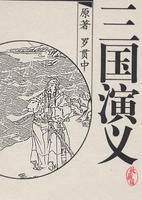of respiration or breathing.
empedocles thinks, that the first breath the first animal drew was when the moisture in the embryo was separated, and by that means an entrance was given to the external air into the gaping vessels, the moisture in them being evacuated. after this the natural heat, in a violent force pressing upon the external air for a passage, begets an expiration; but this heat returning to the inward parts, and the air giving way to it, causeth a respiration. the respiration that now is arises when the blood is borne to the exterior surface, and by this movement drives the airy substance through the nostrils; thus in its recess it causeth expiration, but the air being again forced into those places which are emptied of blood, it causeth an inspiration. to explain which, he proposeth the instance of a water-clock, which gives the account of time by the running of water.
asclepiades supposeth the lungs to be in the manner of a funnel, and the cause of breathing to be the fineness of the inward parts of the breast; for thither the outward air which is more gross hastens, but is forced backward, the breast not being capable either to receive or want it. but there being always some of the more tenuous parts of the air left, so that all of it is not exploded, to that which there remains the more ponderous external air with equal violence is forced; and this he compares to cupping-glasses. all spontaneous breathings are formed by the contracting of the smaller pores of the lungs, and to the closing of the pipe in the neck; for these are at our command.
herophilus attributes a moving faculty to the nerves, arteries, and muscles, but thinks that the lungs are affected only with a natural desire of enlarging and contracting themselves. farther, there is the first operation of the lungs by attraction of the outward air, which is drawn in because of the abundance of the external air. next to this, there is a second natural appetite of the lungs; the breast, pouring in upon itself the breath, and being filled, is no longer able to make an attraction, and throws the superfluity of it upon the lungs, whereby it is then sent forth in expiration; the parts of the body mutually concurring to this function by the alternate participation of fulness and emptiness. so that to lungs pertain four motions — first, when the lungs receive the outward air; secondly, when the outward air thus entertained is transmitted to the breast; thirdly, when the lungs again receive that air which they imparted to the breast; fourthly, when this air then received from the breast is thrown outwards. of these four processes two are dilatations, one when the lungs attract the air, another when the breast dischargeth itself of it upon the lungs; two are contractions, one when the breast draws into itself the air, the second when it expels this which was insinuated into it. the breast admits only of two motions — of dilatation, when it draws from the lungs the breath, and of contraction, when it returns what it did receive.
